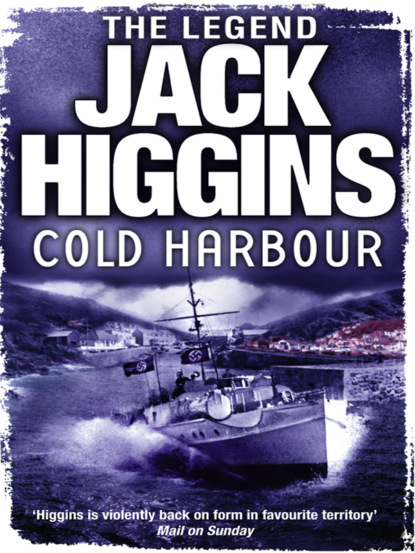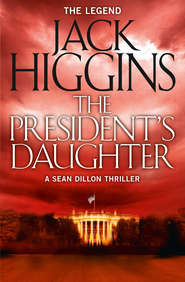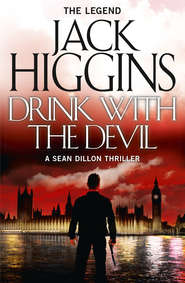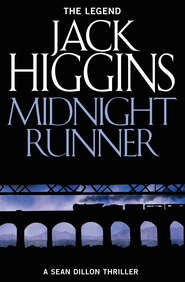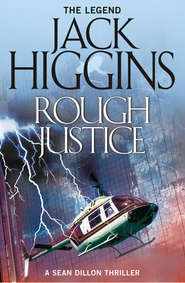По всем вопросам обращайтесь на: info@litportal.ru
(©) 2003-2024.
✖
Cold Harbour
Автор
Год написания книги
2018
Настройки чтения
Размер шрифта
Высота строк
Поля
PUBLISHER’S NOTE
COLD HARBOUR was first published in the UK by William Heinemann Ltd. in 1990 and later by Signet. This terrific novel has been out of print for some years, and in 2011, it seemed to the author and his publishers that it was a pity to leave such a good story languishing on his shelves. So we are delighted to be able to bring back COLD HARBOUR for the pleasure of the vast majority of us who never had a chance to read the earlier editions.
FOREWORD
My reputation for novels of the Second World War since the unprecedented success of The Eagle Has Landed means that fans constantly write asking for more. Cold Harbour was firmly based in fact. Both British and German forces during the war assumed the identity of the enemy. Many German planes flew for the RAF and many British planes were operated by the Luftwaffe. At least two U boats were operated by the Royal Navy. So the idea of Cold Harbour, the secret base in Cornwall where the planes were Luftwaffe and the ships were Kriegsmarine, took shape. I’ve been asked again and again to produce a sequel – who knows?
JACK HIGGINS
October 1996
1
There were bodies all around, clear in the moonlight, some in lifejackets, some not. Way beyond, the sea was on fire with burning oil and as Martin Hare lifted on the crest of a wave, he saw what was left of the destroyer, her prow already under the water. There was a dull explosion, her stern lifted and she started to go. He skidded down the other side of the wave, buoyant in his lifejacket, and then another washed over him and he choked, half-fainting as he struggled for breath, aware of the intense pain from the shrapnel in his chest.
The sea was running very fast in the slot between the islands, six or seven knots at least. It seemed to take hold of him, carrying him along at an incredible rate, the cries of the dying faded into the night behind. Again he was lifted higher on a wave, paused for a moment, half blind from the salt, then swept down very fast and cannoned into a liferaft.
He grabbed at one of the rope handles and looked up. A man crouched there, a Japanese officer in uniform. His feet were bare; Hare noticed that. They stared at each other for a long moment and then Hare tried to pull himself up. But he had no strength left.
The Japanese crawled forward without a word, reached down, caught him by the lifejacket and hauled him on to the raft. At the same moment the raft spun like a top, caught by an eddy, and the Japanese pitched headfirst into the sea.
Within seconds he was ten yards away, his face clear in the moonlight. He started to swim back towards the raft and then behind him, cutting through the white froth between the waves, Hare saw a shark’s fin. The Japanese didn’t even cry out, simply threw up his arms and disappeared. And it was Hare who screamed, as he always did, coming bolt upright in the bed, his body soaked in sweat.
The duty nurse was McPherson, a tough, no-nonsense lady of fifty, a widow with two sons in the Marines fighting their way through the islands. She came in now and stood looking at him, hands on hips.
‘The dream again?’
Hare swung his legs to the floor and reached for his robe. ‘That’s it. Who’s the doctor tonight?’
‘Commander Lawrence, but he won’t do you any good. Another couple of pills so you’ll sleep some more like you’ve slept all afternoon already.’
‘What time is it?’
‘Seven o’clock. Why don’t you have a shower and I’ll lay out that nice new uniform for you. You can come down to dinner. It’ll do you good.’
‘I don’t think so.’
He looked in the mirror and ran his fingers through the unruly black hair that was streaked with grey, although at forty-six you had to expect that. The face was handsome enough, pale from months of hospitalisation. But it was in the eyes that the lack of hope showed, no expression there at all.
He opened a drawer in the bedside locker, found his lighter and a pack of cigarettes and lit one. He was already coughing as he walked to the open window and looked out over the balcony to the garden.
‘Wonderful,’ she said. ‘One good lung left, so now you’re trying to finish what the Japs started.’ There was a Thermos flask filled with coffee by the bed. She poured some into a cup and brought it over. ‘Time to start living again, Commander. As they say in those Hollywood movies, for you the war is over. You should never have started in the first place. It’s a young man’s game.’
He sipped his coffee. ‘So what do I do?’
‘Back to Harvard, Professor.’ She smiled. ‘The students will love you. All those medals. Don’t forget to wear your uniform the first day.’
He smiled in spite of himself, but only briefly. ‘God help me, Maddie, but I don’t think I could go back. I’ve had the war, I know that.’
‘And it’s had you, angel.’
‘I know. The butcher’s shop at Tulugu finished me off. It also seems to have finished me for anything else.’
‘Well, you’re a grown man. You want to sit around this room and quietly decay that’s your business.’ She walked to the door, opened it and turned. ‘Only I would suggest you comb your hair and make yourself respectable. You’ve got a visitor.’
He frowned. ‘A visitor?’
‘Yes, he’s with Commander Lawrence now. I didn’t know you had any British connection.’
‘What are you talking about?’ Hare asked, bewildered.
‘Your visitor. Very top brass. A Brigadier Munro of the British Army, though you’d never think so. Doesn’t even wear a uniform.’
She went out, closing the door. Hare stood there for a moment, frowning, then hurried into the bathroom and turned on the shower.
Brigadier Dougal Munro was sixty-five and white-haired, an engagingly ugly man in an ill-fitting suit of Donegal tweed. He wore a pair of steel-rimmed spectacles of the type issued to other ranks in the British Army.
‘But is he fit, that’s what I need to know, Doctor?’ Munro was saying.
Lawrence wore a white surgical coat over his uniform. ‘You mean physically?’ He opened the file in front of him. ‘He’s forty-six years of age, Brigadier. He took three pieces of shrapnel in his left lung and spent six days on a liferaft. It’s a miracle he’s still around.’
‘Yes, I take your point,’ Munro said.
‘Here’s a man who was a professor at Harvard. A naval reserve officer, admittedly, because he was a famous yachtsman with connections in all the right places who gets himself in PT boats at the age of forty-three when the war starts.’ He leafed through the pages. ‘Every damned battle area in the Pacific. Lieutenant Commander, and medals.’ He shrugged. ‘Everything there is, including two Navy Crosses and then that final business at Tulugu. That Japanese destroyer blew him half out of the water so he rammed her and set off an explosive charge. He should have died.’
‘As I heard it, nearly everyone else did,’ Munro observed.
Lawrence closed the file. ‘You know why he didn’t get the Medal of Honor? Because it was General MacArthur who recommended him and the Navy doesn’t like the Army interfering.’
‘You’re not regular Navy, I take it?’ Munro said.
‘Am I hell.’
‘Good. I’m not regular Army, so plain speaking. Is he fit?’
‘Physically – yes. Mind you, I should think it’s taken ten years off the other end of his life. The medical board has indicated no further seagoing duty. In view of his age, he has the option of taking a medical discharge now.’
‘I see.’ Munro tapped his forehead. ‘And what about up here?’
‘In the head?’ Lawrence shrugged. ‘Who knows? He’s certainly suffered from depression of the reactive kind, but that passes. He sleeps badly, seldom leaves his room and gives the distinct impression of not knowing what the hell to do with himself.’
‘So he’s fit to leave?’
‘Oh, sure. He’s been fit enough for weeks. With the proper authorisation, of course.’
‘I’ve got that.’
Munro took a letter from his inside pocket, opened it and passed it across. Lawrence read it and whistled softly. ‘Jesus, it’s that important?’





